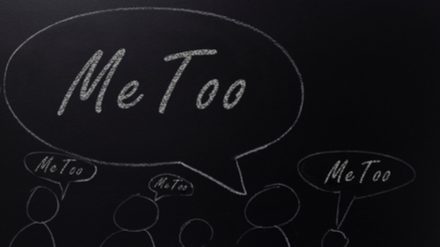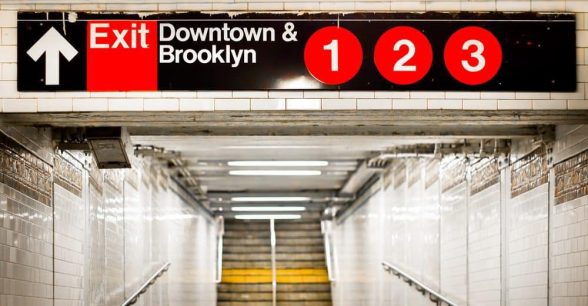Disabled People are Missing from Conversations on Campus Sexual Assault
Last month, the National Council on Disability released “Not on the Radar,” a comprehensive report about campus sexual assault and the disability community. It reveals extensive failures on this issue, from accessibility barriers at rape crisis services to the exclusion of disability status from data collection projects. The most stark finding was that one in three disabled undergraduate women on campus has experienced sexual assault — and this leaves out data about people of other genders, graduate students, faculty, and staff.
The increased risk of sexual assault in the disability community is a documented issue, so while this number is bleak, it is, unfortunately, not very surprising. What’s chilling, says Ana Torres-Davis, an attorney advisor with the NCD, was “realizing that the federal government had left students with disabilities out of very large research projects.” Federal data collection doesn’t require it, many campus climate surveys don’t include it, and other research hasn’t delved into the issue. “We were invisible,” she added, even after the Obama Administration pushed to reduce campus sexual violence.
That invisibility may in part explain the profound access issues with campus crisis services documented in the report. Torres-Davis noted that campuses are getting better about basic physical accessibility, including ramps, elevators, and other means for people with mobility disabilities, though they aren’t perfect. Activist Andrea Pino, who cofounded End Rape on Campus, notes that especially on older campuses, colleges dodge accessibility requirements with claims that their buildings are historic.
When campus crisis services are physically inaccessible, that’s a huge barrier to reporting. So is failing to provide competent ASL interpretation services. Some D/deaf and hard of hearing students reported having to write notes back and forth to a crisis counselor, or wait days over the weekend for the college to secure an interpreter. Blind and low vision students, those with cognitive, intellectual, or developmental disabilities, and mentally ill students, among others can encounter other access barriers. This can lead to underreporting of rape; in some cases students may be unable to report, even when they want to.
These issues are exacerbated by the fact that campus disability services often exists in a silo. The NCD report found that interoffice collaborations to improve accessibility and include disability in sexual assault prevention were profoundly lacking. As Torres-Davis put it, “they never thought about it.” Thus, even the most active and supportive of disability services offices couldn’t counteract, for example, a Title IX office up a flight of stairs that provides no information or support about disability and sexual assault.
Title IX offices are responsible for fulfilling responsibilities under an eponymous amendment to the Higher Education Act. This amendment prohibits discrimination upon the basis of sex. Historically, it’s been used by female athletes to fight disparities between women’s and men’s teams, but it’s also used by sexual assault and harassment activists to force their campuses to take their cases seriously.
Katie Rose Guest Pryal, an attorney and sexual assault advocate, identifies another issue: Rape itself can be disabling. Rape survivors are at extremely high risk of developing PTSD, and Pino works with students who experience anxiety, depression, and the exacerbation of existing mental illnesses or other disabilities in the aftermath of rape.
Pino made national headlines for her leveraging of Title IX to force the University of North Carolina, Chapel Hill to take action on her assault. The part of the story that’s less publicized is that ultimately, the Department of Education also opened a separate Title II complaint, referencing Title II of the Americans with Disabilities Act in a finding that her case included disability discrimination, too, on the basis of how her assault affected her mental health. This is, she says, extremely common, and suggests that leveraging Title II and the ADA, along with Section 504 of the Rehabilitation Act of 1973, which also bars disability-based discrimination would be a powerful way to fight campus rape.
Pino says many campuses are focused on protecting their legal concerns when it comes to campus sexual assault, but that there are other models of handling both prevention and claims. Retention-based models, for example, are geared towards helping students stay in school through a combination of accommodations, counseling, and student-centered justice. These models can be highly effective, radically reducing the risk that survivors will drop out.
“I think universities are doing all right with accommodating people who come in knowing that they have rights. These students are better equipped to navigate the Title II process,” Pino remarks. Disabled people who have spent their lives fighting to survive are certainly experienced with bureaucracy and leveraging the law. But newly-disabled rape survivors, or disabled people who weren’t connected with the disability rights movement and their legal rights prior to college, are at a profound disadvantage. Learning your rights as a disabled person while also dealing with the aftermath of sexual assault is a formidable challenge.
While taking action on these issues can include lawsuits, prevention of the incidents that lead to lawsuits in the first place should be foremost on our minds. The National Council on Disability study includes a number of recommendations, such as adding disability to data requirements, requiring the inclusion of disability in reporting, clarifying some legislation, and improving cross-campus collaboration on disability awareness and accessibility.
That doesn’t leave others helpless. Individual states can and should pass legislation addressing campus rape, but students can also have a profound impact. Torres-Davis encourages students to contact campus Title IX offices to ask about disability inclusion, and she says that if students are asked to complete campus climate surveys that don’t ask about disability, they should raise complaints. Similarly, people organizing campus events should actively include disability, and reach out to campus disability services and activists to enrich their rape prevention programs.
Disabled students are a vital and thriving part of campus life, and they shouldn’t be relegated to the margins. Nondisabled people can make a point of connecting with the disability community and ensuring that all campus services are accessible. That, in turn, can help to turn the tide on the one in three statistic identified by the NCD.
If you have experienced sexual assault on campus, you can contact RAINN or End Rape On Campus.
About Rooted In Rights
Rooted in Rights exists to amplify the perspectives of the disability community. Blog posts and storyteller videos that we publish and content we re-share on social media do not necessarily reflect the opinions or values of Rooted in Rights nor indicate an endorsement of a program or service by Rooted in Rights. We respect and aim to reflect the diversity of opinions and experiences of the disability community. Rooted in Rights seeks to highlight discussions, not direct them. Learn more about Rooted In Rights


